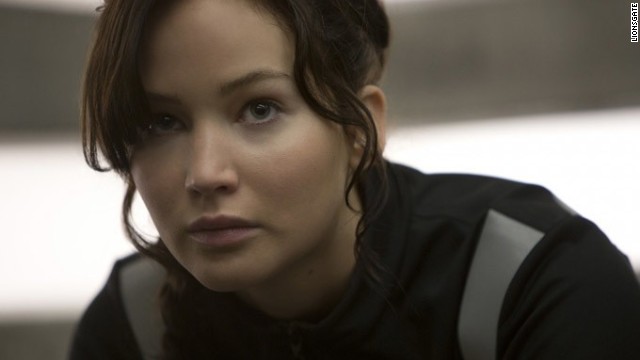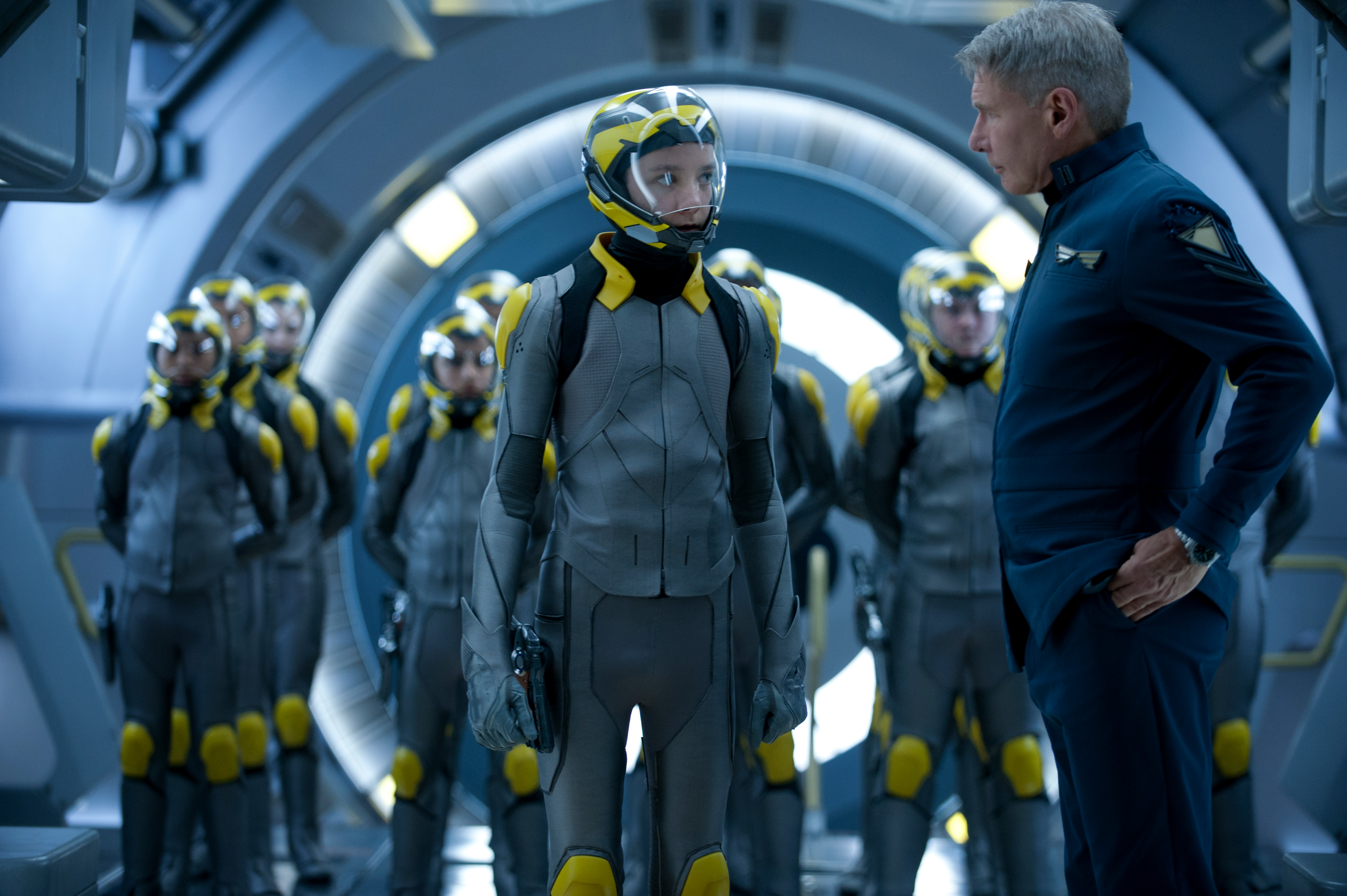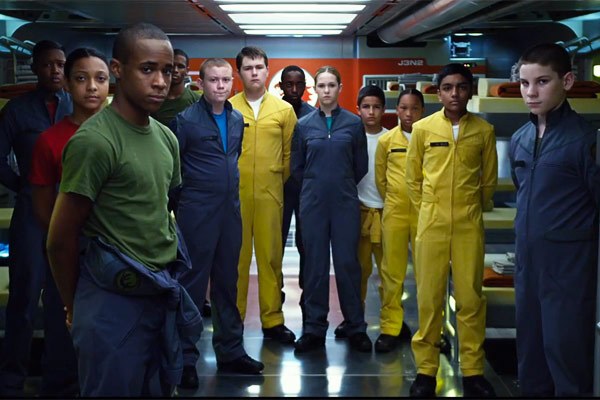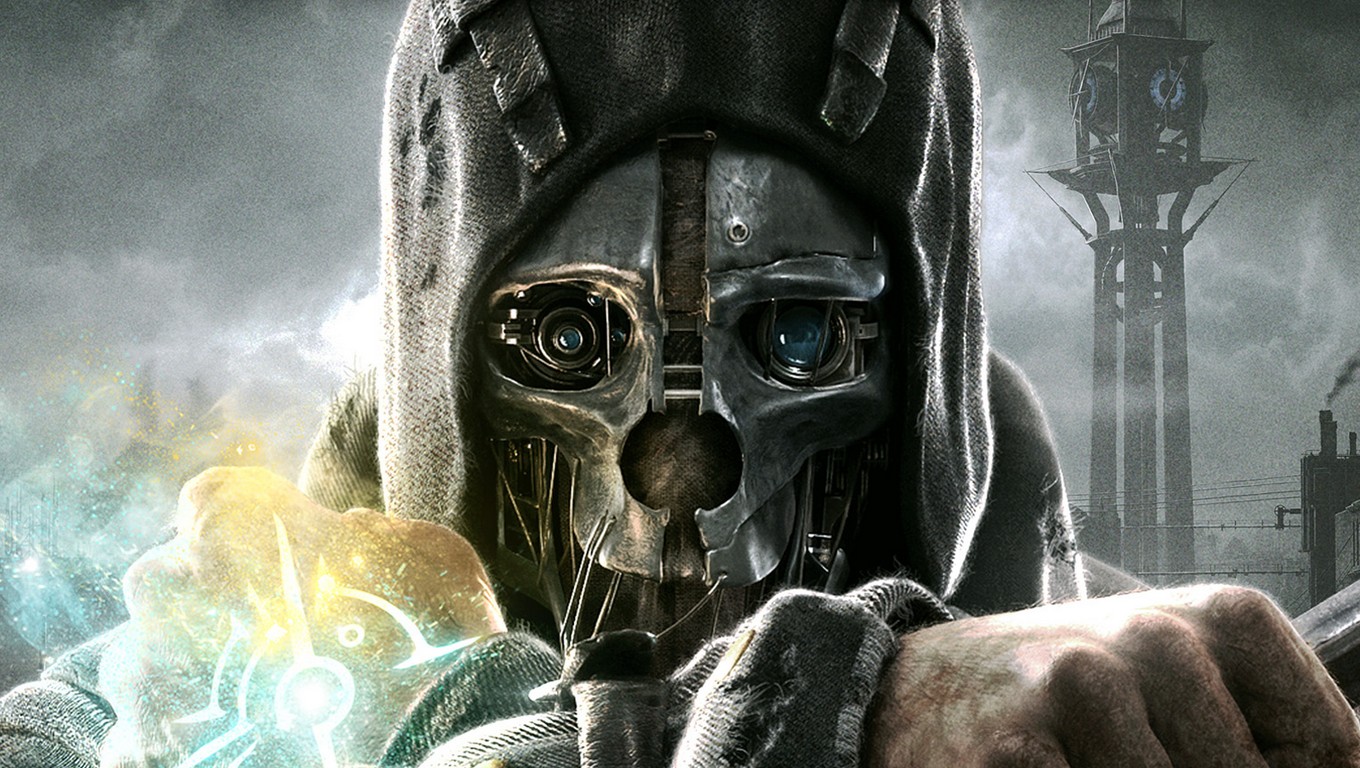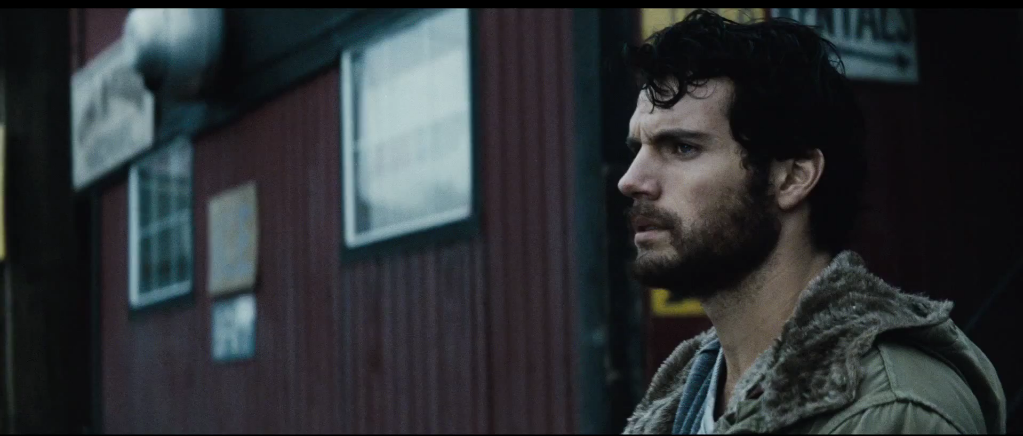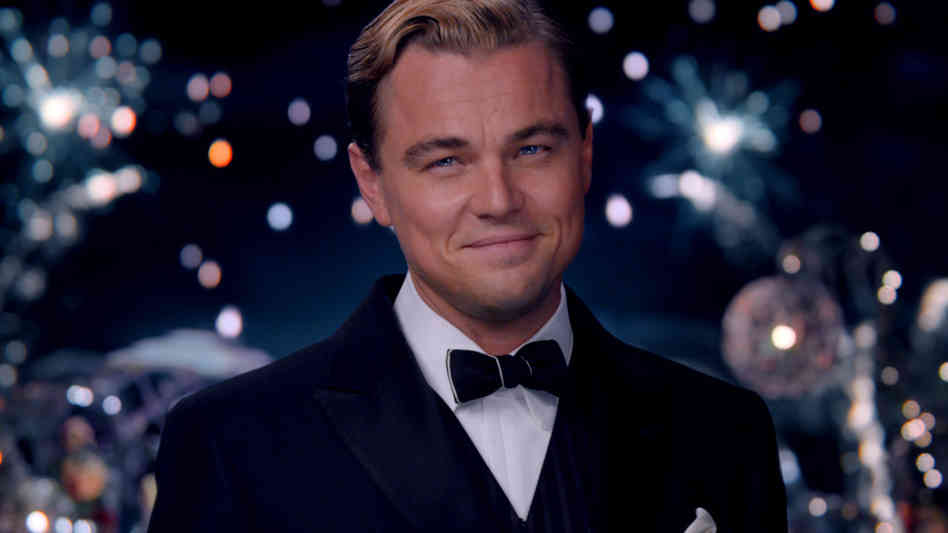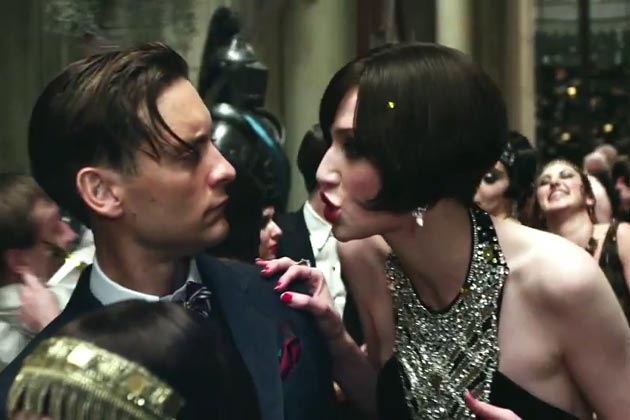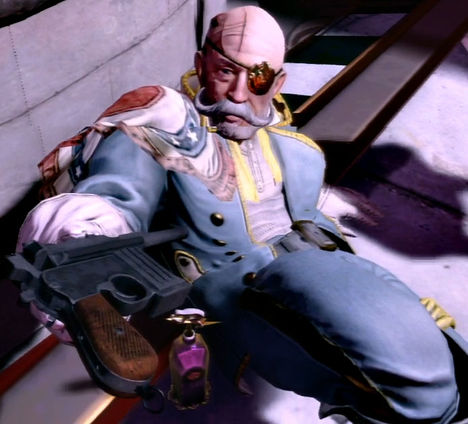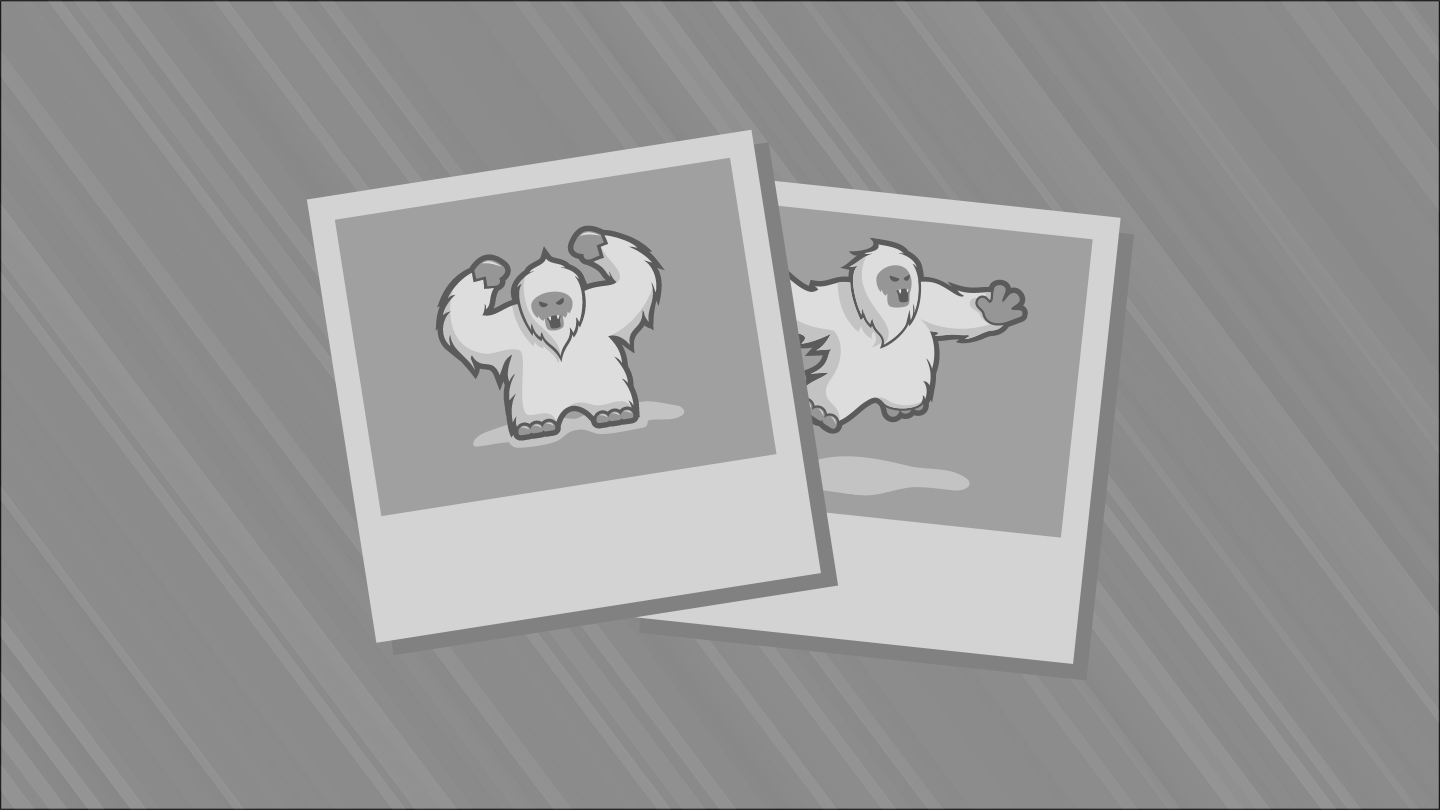
In short, even though the Hobbit's showing-off is as excessive as Gandalf's fireworks, the saga continues to live on with beautiful emotional fire, thanks to a good deal of love and respect for J.R.R. Tolkien, though the torch-carrying facebook mobs moan otherwise.
A problem is that much of it is puppy love--a sort of adolescent "Wow!" like a kid destroying his father's meticulous train set. Peter Jackson throws us a few absolutely ridiculous bits: a twenty-minute barrel-ride, a silly magistrate-with-a-combover side story, a trippy Sauron flashback complete with lava lamp animations, and some dialogue and scenes that are just plain stupid. Parts could easily turn into a drinking game: How many orc heads will roll? How many times will Legolas slide across the screen like a tobogganer? How many times will Peter Jackson try to make us believe that Bard and Thorin are as cool as Aragorn?
In other moments, however, the love for Tolkien seems like it is walking hand in hand with the Old Master himself, bushy-eyebrowed and weird and wise. One can imagine Tolkien pointing out the potential allegories here, laughing at a few little moments that bring churning blood and changing soul to The Hobbit.

Nowhere would he be prouder, I think, than with Martin Freeman's Bilbo. Bilbo doesn't get enough screen time in this film, and yet he dominates as the scurrying, scheming, steel-hearted would-be burglar. He tells the great dragon near the end of this film's journey "I am he that walks unseen." Watching Bilbo come to his own, two parts burglar and one part hero, is the most compelling journey of the film.
Freeman finds time, in a movie obsessed with cutting orc's heads off, for wordless soliloquies that express more than some characters do with speeches of babbling. His relationship with the ring is only mentioned once on screen, but every time it appears we know what it costs him to use it again. Because of Bilbo, a morality finds its way back in to a powerfully moral world which, if Peter Jackson's boyish side were left unchecked, might have disappeared entirely.

There are others to thank for the film's real emotion and beauty. Peter is actually one of them. His invented romance between Kili (the one dwarf who, looking at, you would legitimately consider dating) and the wood elf captain Tauriel flavors the story with a relief we need. Played by Evangelline Lilly, who here secures my embarrassing and eternal devotion, Tauriel is a soulful addition to a world that benefits from her presence. A few moments of their romance are silly, but one scene in the prison shows us the reason we believed that Peter Jackson could bring this world to life. The wistful Tauriel sighs to Kili, who complains that the light of the stars seems cold and remote:
"All light is sacred to the Eldar. Woodland elves love best the light of the stars. I have walked there sometimes, beyond the forests and into the night. I have seen the world fall away and the white light of forever fill the air."

As fantasies often do, The Hobbit and The Lord of the Rings pit dark against light. For writers who don't know what they're doing, it's easy. "Oh, the light is the good guys and the dark is the bad guys." Scenes like this, however, and many moments of The Hobbit, attempt to explore what the "light" really is. The quarreling races wish for different outcomes--Thranduil wants sanctity, Biblo security, the dwarves a homeland, the people of Laketown prosperity--and they fight over their different hopes. The film calls for unity. The message resounds in Tauriel's question: "Are we not part of this world?"
The other elf that steals the show is the arrogant, cold Thranduil, (father of pre-Weight-Watchers Legolas) played by Lee Pace. The macho actor might have not seemed like the right choice at first, but his slithering, overconfident King slides into the world of The Lord of the Rings as naturally as Madame Blanchett as Galadriel, and five times better than Hugo Weaving.
And let's not forget the reason we came to the mountain in the first place--Smaug, the massive gold-hoarding dragon, voiced by the renowned Benedict Cumberbatch. His scene with Bilbo is as iconic and well-written as the Smeagol-Bilbo scene in the first film, and in many ways it does not disappoint. Bilbo's wordplay delights, and in terms of a visual feast it's a hard contest between the dragon and the actor.
The dragon stuns visually, bathing in that sea of gold or soaring or breaking things. Sadly, despite Mr. Cumberbatch's best efforts, the post team went to town on his voice and left a grunting cacophany. The classical actor's clever inflections and smirk are mostly lost, though if you're listening for them, you may find them. His dialogue flips between the beauty of Tolkien--"my teeth are swords, my claws are spears, my wings are a hurricane"--and silly things bad villains shout "I am fire! I am death!" His conclusion, like other parts of the film, sacrifices meaning and character for tricks and trifles.

"The Hobbit: Desolation of Smaug" will not bowl over diehards or newbies, but it is another heartfelt and exciting installment in one of my favorite sagas ever. Even if it isn't the great story about fighting against despair, it's a reminder of why we must stand together, and the kind of world it makes when we don't.

